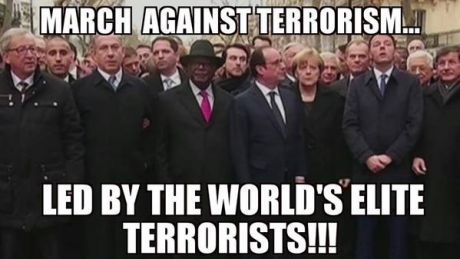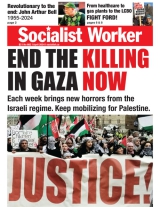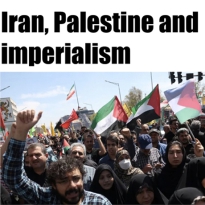News
You are here
Unity vs hypocrisy

January 29, 2015
It is beyond imagination—millions of people, horified by violence, marching together in Paris on January 11. The message seemed to be clear: supporting freedom of expression. But the rally also exposed the hypocrisy of governments and politicians who claimed to be defending the right to freedom of speech in France, but suppressing dissent at home.
Authorities in France called it the largest mass rally in French history. Prior, during and weeks after the rally, the right to freedom of expression has been violated in several countries whose leaders participated in the march. Not only leaders of the world are guilty of hypocrisy, but international mainstream media is too. For instance, 2000 people killed in Nigeria were not enough to draw the world’s attention (including the Nigerian president) when compared to the Paris shootings.
“Je suis Charlie” was and is still the banner under which self acclaimed freedom of expression defenders are marching. There is no doubt that many of those millions mobilized around the issue have good intentions, but governments do not. Amongst the participants in Paris march: French President Francois Hollande, Israeli Prime Minister Benjamin Netanyahu, Palestinian Authority President Mahmoud Abbas, Bahraini Foreign Minister Khalid Al-Khalifa, King Abdullah II of Jordan, Egypt’s Foreign Minister Sameh Shoukry and several others from different parts of the world. Reports mentioned that Saudi officials also attended. It’s easy for them to support freedom of expression in France, while not implementing it in their own countries.
The participation of governments’ representatives under the banner of freedom of expression is outrageous. Reporters Without Borders condemned the presence of “predators” in Paris march. “It would be unacceptable if representatives of countries that silence journalists were to take advantage of the current outpouring emotion to try to improve their international image and then continue their repressive policies when they return home,” said Reporters Without Borders secretary general Christophe Deloire in a statement following the march.
Arab Spring
While many of the mentioned governments violate the right to freedom of expression, it is important to shed light on specific countries in the anniversary of the Arab Spring. Egypt is a place where journalists and bloggers are systematically jailed and persecuted. It is ranked 159 out of 180 countries in Reporters Without Borders’ press freedom index. French authorities did not attack the millions who participated in Paris march. But that was not the case with Egyptian protestors marking the fourth anniversary of the their revolution in January 25. They faced governments’ crackdown in which at least 20 were reportedly killed, including revolutionary socialist Shaimaa El Sabbagh.
Bahrain and Saudi Arabia are other places where activists, journalists and protestors face ongoing attacks. Saudi authorities flog Raif Badawi for “insulting Islam” and sentenced pro-democracy Arab Spring supporter and faith leader Sheikh Nemer Al-Nemer to death. He faces imminent risk of beheading over his speeches, while Saudi officials participated in Paris march condemning extremism. Waleed Abu AlKhair, lawyer and human rights activist, remains detained in Saudi Arabia for peacefully exercising his right to freedom of expression. Several young peaceful pro-democracy activists and protestors have received severe sentences, including death. Many of the political prisoners, such as Al-Nemer, have been in solitary confinement for years. According to Amnesty International, citizens and foreigners in Saudi Arabia are banned from practicing their religions freely if they do not comply with the state’s doctrines. Women rights movements have also been facing oppression.
Bahraini government punished human rights activist Nabeel Rajab for posting tweets and persecuted Al-Wefaq opposition party leader Shiekh Ali Salman for “inciting hatred against the regime.” Many other prisoners of conscience remain in prison, while the Bahraini revolution is marking its fourth anniversary on February 14.
The “Je suis Charlie” rally exposed governments and the international community during a time in which revolutionaries, pro-democracy protestors and those in solidarity are marking the fourth anniversary of the Arab Spring. While it is important to condemn acts of violence targeting journalists, writers and cartoonists, this should not be used a cover for governments’ acts of violence, oppression and repression. The struggle against oppression continues, but a large global mobilization is needed to give a message to those fighting for freedom of expression in the Arab region: we are in solidarity.
Section:
Topics:










